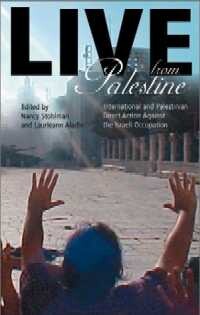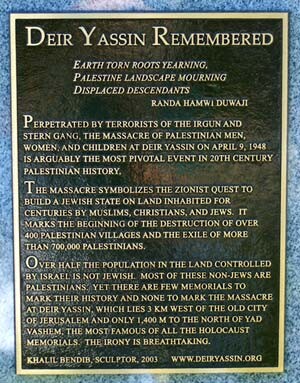
New book on Israeli occupation draws angry response, harassment
28 September 2003
The editors and publishers of a recently released anthology about international nonviolent action supporting Palestinian sovereignty have experienced harassment by phone and email. Harassment surrounding this publication is nothing new. Months earlier when the book was first advertised on the internet, one of the authors started receiving continuous hate calls and emails at her office, acts that completely disrupted the workplace. Read more about New book on Israeli occupation draws angry response, harassment


